Spotlight on Tom Dreesen
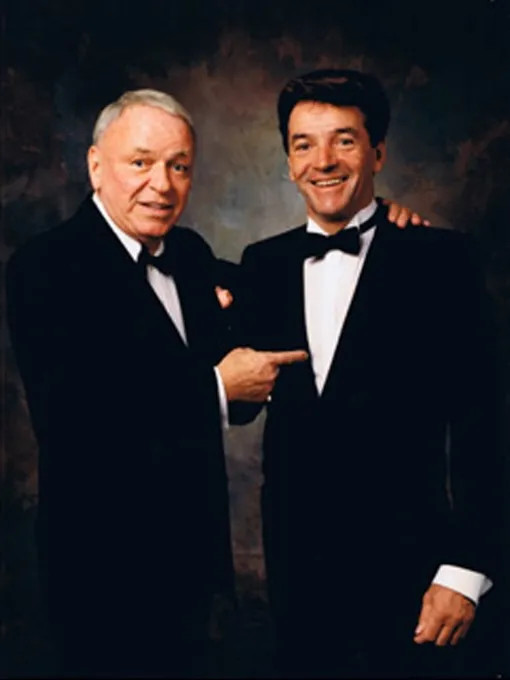
Legendary comedian TOM DREESEN has graced the show business stage for over 50 years. A consummate professional, he has performed alongside the most celebrated figures in the entertainment industry, including Frank Sinatra, Dean Martin, Sammy Davis Jr., Frank Sinatra Jr, Johnny Carson, David Letterman, Smokey Robinson, Liza Minnelli, and so many more too numerous to list!
Supremely talented with exceptional comedic skills, Tom spent 14 years on tour as the opening act for The Chairman of the Board, vocalist extraordinaire, Frank Sinatra. He also opened for another extraordinary member of the Rat Pack, Sammy Davis, Jr., best known as Mr. Entertainment! As if that isn't impressive enough, he delighted audiences with 500 national TV appearances throughout his rising career, adding to his first-rate comedy arsenal.
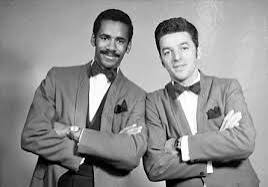
Tom's early career path was set in motion when he teamed up with Tim Reid as America's first and only biracial comedy duo. After 6 successful groundbreaking years of touring, they co-authored the book, Tim and Tom: An American Comedy in Black and White. So much of what Tim and Tom kidded respectfully about decades ago is still relevant today and was ahead of its time.
Continuing forward, Tom Dreesen's career soared when he landed an opportunity to perform his stand-up routine on the highly popular and influential TV show, The Tonight Show with Johnny Carson. He credits Johnny for his future success after he 'killed it' on that spectacular show segment! With 28 million people watching, Tom was on his way to achieving his comedy dream. Over 60 appearances on The Tonight Show proved Tom had comedy longevity.
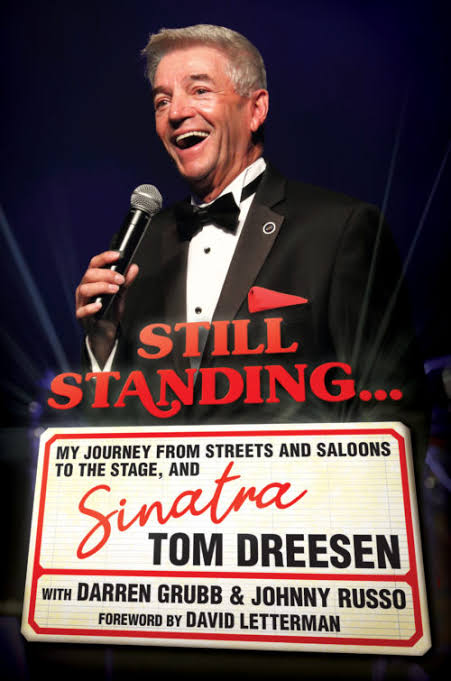
It would take a book to cover all Tom Dreesen has accomplished and indeed, his celebrity memoir, SIItill Standing: My Journey From Streets and Saloons To The Stage, and Sinatra does deliver. My friend and colleague, Darren Grubb, co-author of Still Standing, offers his insights and admiration for Tom.
"My friend and co-author Johnny Russo and I are devoted Rat Pack fans and when we heard Tom was interested in writing his own story we jumped at the opportunity to be involved. I thought I had heard or read every Frank, Dean or Sammy story out there, and I was blown away hearing his (Tom's) stories and experiences with them. Tom had a remarkable career before he worked with Frank. and certainly after. His journey from a tough upbringing to the heights of success is inspiring, uplifting, and proof that good men find a way .I'm sure you've heard of the old saying "Never meet your heroes."
Well, Tom shatters that paradigm. He is the most humble, thoughtful, and decent man I've ever worked with. It was the honor of a lifetime to be a part of this project, and I'm blessed to know him."
Sometimes in life we are fortunate to have 'pinch me' moments. Chatting recently with Tom was one of those times for me. He was charming, gracious, naturally funny, down to earth, and chock full of entertaining stories.
I'm a loyal fan, but also as a producer who presents Sinatra-inspired events, I was genuinely enchanted hearing Tom share his outlook on comedy, life, performing and a myriad of touching memories about Frank, Dean and Sammy.
As we began our conversation, Tom spoke honestly about the changing times of comedy.
It's changed dramatically since I started out. It's the language. And I'm not I'm not a prude. I'm a street guy. I don't have a degree from academia. I got a doctorate from the streets. I spent four years in the military. I was a bartender. I know every dirty joke that's out there. And I've heard them, and I enjoy hearing them like anybody else. But when I started out, you couldn't make a living doing material like that.
Wherever you went in America when I started out, people would say, what do you do for a living? You'd say, I'm a stand-up comedian. So the next question was, have you ever been on Johnny Carson? If I haven't been on Johnny Carson in the eyes of America you just weren't a comedian. So, how can I get on that show? You had to write material that Grandma and Grandpa, Mom and Dad, and the kids could laugh at. You realize you couldn't say, go to hell, couldn't say, damn on that show. Then cable television came along and you could say whatever you wanted to say. And it turns out that created a nation full of comedians who use heavy use of the F word every other sentence. That's how it's changed.
As far as the cancel culture, years ago, Lenny Bruce had the same thing. They'll always try to stop comedians, and this is my opinion. Comedians are the last bastion of freedom of speech. We have the First Amendment in this country and thousands of men and women died so that we can have that First Amendment to say what we want to say. You don't have to listen to us. You can turn us off, you can walk out the door, you can ask for your money back, but you can't stop Americans from saying what they want to say. And they are always after the comedians because we use that freedom of speech. And so the politically correct police and the cancel culture are always after us, but they're not going to win, not in this country.
Many fans remember Tom from his numerous performances (over 60 times) on The Tonight Show with Johnny Carson, and on The David Letterman Show, where he also guest-hosted. He reaffirms the importance of those shows in his career.
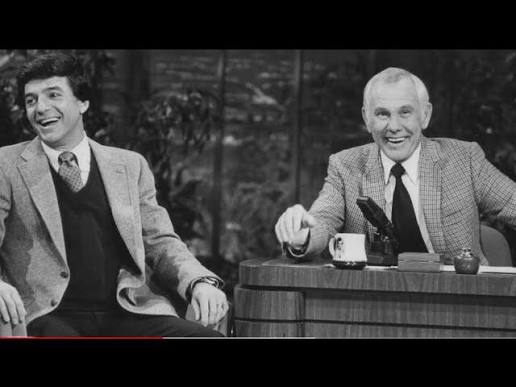
I'll explain to you about The Johnny Carson show, how important Johnny's approval of you was. If Johnny liked you, then he called you over to sit down next to him after you had a couple of appearances, One appearance on The Tonight Show and to America, you had arrived. But to our industry, you hadn't arrived until Johnny sat down and talked to you.
28 million people watched that show. One appearance and your life changed. Freddie Prince did one appearance and the next day he got a sitcom. I did one appearance on that show and CBS signed me to a development deal the following day.
David (Letterman) and I started out together, so I had David's approval the first time he met me. I came off stage at the Comedy Store, and he had just driven out to LA in an old red pickup truck from Indianapolis. And I came off stage and he complimented me on my stand-up material. He and I became friends, instant friends and we've been friends ever since.
He let me host his show, and he appreciated me and my stand-up and my comedy. It was very, very important that he came along when it was always Johnny Carson. A lot of the younger comedians wanted David's approval because he was reaching a much younger audience.
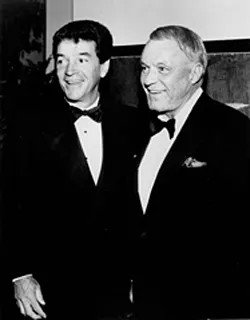
Tom toured with Frank Sinatra for 14 years as his opening act and became close with him personally and professionally. A relationship based on true mutual respect.
I really cared what Frank Sinatra thought of me. That Frank Sinatra thought enough of me, of my act, my performance, That I could come and grace the same stage with him.
When I was growing up on the South Side of Chicago, if you played a word association game with me, if you said love, I'd say, mom, if you said baseball, I'd say Cubs. If you said show business. I said Frank Sinatra, Sammy Davis Jr and Dean Martin. And that they thought enough of me that I could grace the same stage with them. Those are moments that are hard to describe.
Walking out on stage in front of 20,000 people in arenas all over the country, 45, 50 cities a year where they came to see Frank, not you. And to win that audience over and Frank's approval of that. How much he appreciated, that meant more to me than anything.
Tom speaks warmly about a special moment with Frank.
I would spend like six times a year, go to his compound down in Rancho Mirage, California, Palm Springs area, and I'd stay at the compound and we'd hang out and go riding around with him. He stayed up till dawn every night. He never went to bed till the sun came up.
We would ride around the desert. When we were alone in the car, many of those nights, he wasn't the great Frank Sinatra. And I wasn't comedian Tom Dreesen. He was a kid from Hoboken, new Jersey, and I was a kid from Harvey, Illinois. And that's who we were. Those are very, very, very special moments.
One night, on the way back to the compound, the sun was coming up and I was driving him back, and he told me something very personal. Something very private. And he said to me afterward, I shouldn't have told you that. I said, well, it won't go any further than this car. He said, I know, I know, but I shouldn't have. I shouldn't have told you that. And I thought about it for a second. I said, well, it's not like we're strangers, you know, we're friends. And then I don't know what made me do it. I said, Strangers in the night exchanging glances, you know, singing. But he looked at me and said, for God's sake, if you're going to sing that song, get in key. And he starts singing it back to me. And we were singing it back and forth when we pulled into the compound. And when I got into my bungalow that night, I thought if I went back to my old neighborhood and told all the guys in the bar, I was just riding around with Frank Sinatra singing Strangers in the night they'd say, get the hell out of here. But that's a moment I'll never forget.
Tom recounts Frank Sinatra's impact, words of wisdom and generosity.
Frank knocked me over with his wisdom and his philosophy.
We were coming out of the Waldorf Astoria one night, on our way to do a show, and we went out the back way because Frank couldn't go out the front, as he'd get mobbed. Security was taking us to the limousine and a woman jumped out of the doorway. The doorman told me later that she had been there for five hours waiting for him. She hollered out, Mr. Sinatra, please, Mr. Sinatra, please. Security was holding her back as we were getting in the limo. And she's screaming, please, Mr. Sinatra, please.
Frank got back out of the limo and told security to leave her alone. He said, what is it? She said, my husband is home very, very, very ill. If you could sign an autograph to him, it would mean the world to him.
He said, sure, signing an autograph. And she said, beautiful cufflinks. And they were very, very, very expensive cufflinks, well over $1,000, I know where he got them. But she said, what beautiful cufflinks. He said, thank you. And when he finished the autograph he took the cufflinks off and he handed them to her and said, give these to your husband. I want him to have them.
She said, oh, no, no, no, I don't want them. I just was admiring them. He said, no, I want your husband to have them.
After Frank gave away his cufflinks, Tom asked, why did you do that? Frank's response and philosophy on giving have forever stayed with Tom.
He said, Tommy, if you possess something that you can't give away, then you don't possess it. It possesses you. And I never forgot that. And he said to me, Aristotle Onassis had millions of dollars. He had mansions, he had yachts, private jets. He said and the second he died, all that transferred, nothing we have is ours. And he said, that shirt on your back, Tommy, if you die tomorrow, someone else will own it. That changed my life. That totally changed a lot of my thinking on life.
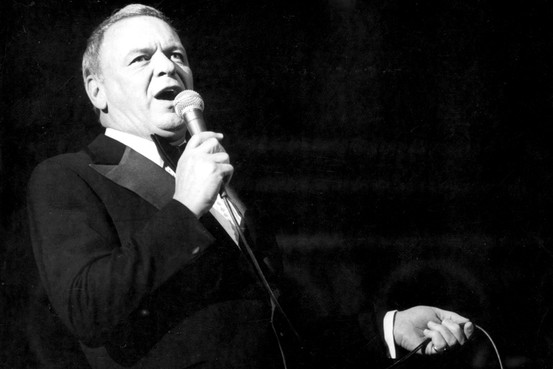
Tom shares how the audience reacted when Frank sang My Way, or The House I Live In, particularly when they knew Frank was approaching his golden years.
I'd always sit in the wings and look at the audience, how they reacted to that song.
Frank would stand on stage, all the lights would go down, just a spot on him, and he would start to sing.
And now the end is near...People would burst into tears.
And though I faced that final curtain.....We love you, Frank, long live Frank Sinatra. It was so moving night after night.
And The House I Live in. When he would get to the end of the song, of all the things he loved about America, he'd say, but especially the people, and all the lights in the arena would come on. And I would get chills every night watching him do that song.
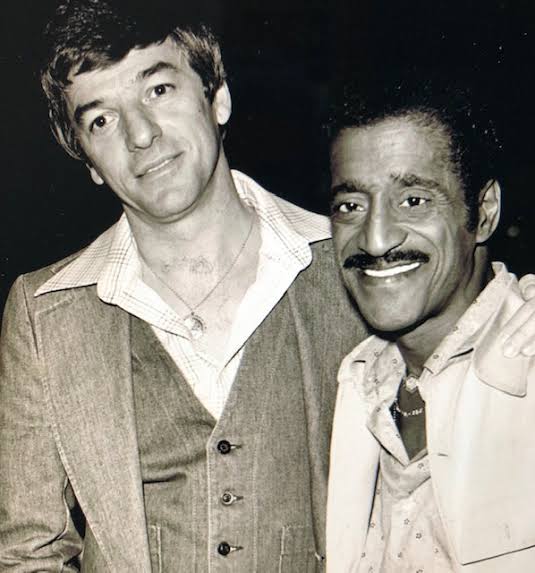
Tom tells how he witnessed a dramatic Sammy Davis Jr. performance moment.
There's nothing Sammy Davis couldn't do on the stage. Sammy could sing as good as anybody out there.. He could dance better than anybody out there. He could do comedy as good as any comedian. He could do impressions better than anyone out there. He could play the piano. He could play the drums. He could play the trumpet. He played the xylophone. Sammy was born to be in show business
Years ago Tim Reid and I were in Chicago at the International Amphitheatre called the Black Exposition. There were black businessmen, entrepreneurs, men and women who got together for one whole week of exchanging ideas. All the black acts were there, and I was there because I was with the black white comedy team of Tim and Tom. The comedians were in the wings and every time a singer needed the stage struck, they would say, get up on stage and do five minutes while we set the stage for the next singer.
The show was loaded with Motown acts, Smokey Robinson and the O'Jays, The Temptations, doing three songs and moving on.
Sammy Davis flew in from overseas to be on that show. Months prior to that show, Sammy Davis Jr had been at the White House and President Nixon gave him an award. And Sammy hugged President Nixon. Sammy hugged stop signs. You know, he hugged everybody. So when he hugged President Nixon, pictures were taken and it was on every black magazine out there, Ebony, Jet, all the magazines. And Sammy became persona non grata in the black community because they were very anti-Nixon.
This was the first time he was appearing in front of a black audience right after that picture was taken. The emcee introduced Sammy, ladies and gentlemen, please welcome Sammy Davis Jr.
And the audience began to boo and scream and jeer. Get off the stage, boo, calling him names and screaming so loud. Sammy was trying to get his conductor, George Rhodes, into the countdown, and the music was drowned out. And George had headphones on and still couldn't hear.
So Sammy stood there while he was being booed and jeered. We had knots in our stomach backstage, as the great Sammy Davis Jr was being booed. The emcee came back out and said to the audience what is our struggle all about? If it isn't about individual freedom, that the man has the right to become a Protestant, a Catholic, a Jew, a Democrat or a Republican? Isn't that what we're fighting for? A right to do that. This man came 3500 miles to sing for you. Doesn't he at least deserve to be heard? Mumble, grumble. Everybody sat down.
Sammy went over and he changed the sheet music, and he sang one song, I Got to Be Me, from the Broadway play. And never before did that song have the meaning as it did that day and walked that stage. Whether I'm right, whether I'm wrong, whether I find the place in this world or never belong. I've got to be me. I'll go it alone. If that's how it must be. I can't be right for somebody else if I'm not right for me. Now, halfway through the song, we're realizing he's getting that crowd back. At the end of that song, he got a standing ovation. He got a standing ovation. Like, we still don't believe your politics, but that was something special. It was Sammy personified. He said to the audience, okay, you showed me what you got. Now let me show you what I got.
In my 55 years in show business, that is the single greatest performance that I have ever seen. I've seen people take a tough crowd and get them back in an hour or so. I've never seen anybody take a hostile audience and in one song, get a standing ovation. That is the greatest performance I've ever seen.
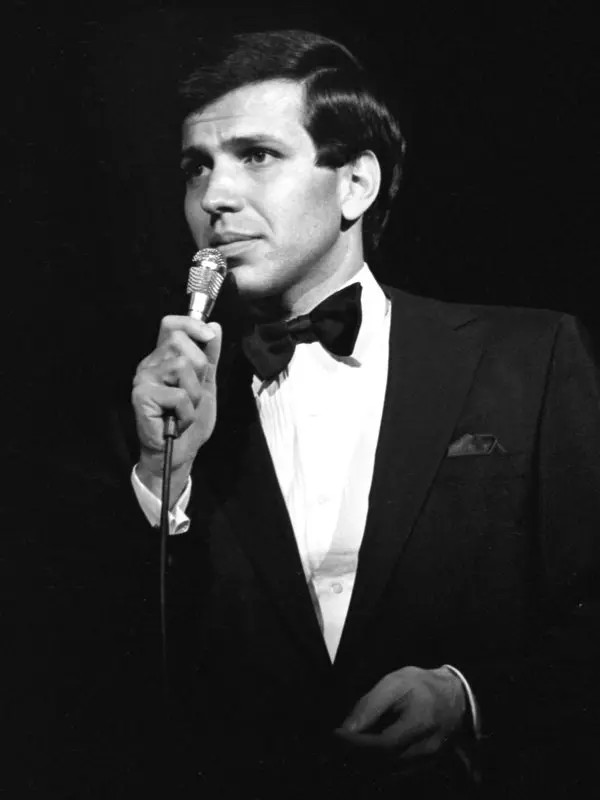
Tom recalls a light-hearted story about Frank Sr, and Frank Jr who was directing the orchestra, during a gig in Atlantic City.
I was getting ready to go on stage, and the stagehand said Mr. Dreesen could I have a picture with you? I said, sure. We took the picture (with small camera) and I said, could I take it out? And he said, sure. At the end of the show, I was goofing with the audience. I said, I can't stand entertainers who say you're the greatest audience and try to patronize you, but I have to tell you, you're the greatest audience to perform for. Do you mind if I take a picture of you?
And I took this little tiny camera, pointing it at the audience, and said can you give me a little bit closer? They all start laughing. And, now it was a joke.
Whenever I finished my show in the casinos I always exited stage right, Frank entered stage right. We would crisscross and the orchestra would be vamping.
Frank would say, Tommy, come back and take another bow. I'd go halfway out to him (what they call a half bow), bow to the audience, wave to him and say, good night. I did that for every year, for years and years.
After about ten years touring with him on this particular night, Frank went to center stage and said, Tommy, come back and take another bow this night, and instead I walked straight up to him.
Now his eyes got big as his tennis balls. Frank Sinatra Jr's got the orchestra vamping as he's the musical director. Then I said , could I ask you a favor? Frank said, I'm trying to start the show now. You never mess with the show with Frank. I said, could I ask you a favor? He said, I'm trying to start the show. I said, could I get a picture? He said to the audience, Look at this guy. I'm trying to start the show and he wants to take a picture. Then he said, Okay.
So I handed Frank the camera and I said, get a picture of me and Frank Junior. I put my arms around Frank Junior, and he's grinning from ear to ear, and under his breath he said to me, he's going to fucking kill you.
Well, luckily a woman in the audience took that picture. She took a picture of Frank Sinatra trying to take a picture of us (Tom and Frank Jr). I use that in my one-man show.
And everybody thought, oh my God, Frank's going to tell Tommy, get your suitcase. But we had such a great relationship.
Tom continued about the talented Frank Sinatra, Jr.
In all the years that I toured with Frank Sinatra, only twice he canceled because of his throat. He couldn't sing. And Frank Jr. both times filled in, and this was on the spur of the moment. It wasn't like they had a weekend event. One night, just before the show, Frank said, I can't go on. And both times Frank Jr. did an incredible job. He was a good singer and a good musician. And whenever people say, well, he wasn't like his father, well, no one was like his father, right?
You know, how would you like to go on a baseball game with the name Mickey Mantle Junior!
Closing our conversation, Tom shares about first meeting Dean Martin and a special connection he had with Dean's family.
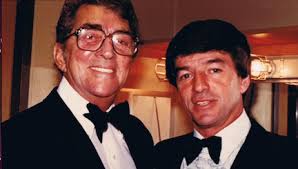
First of all, I met Dean in a bar. It was called Dominick's. Where else would you meet Dean Martin? I went up to the bar. I didn't know Dean was there. He was in the corner. And this is the truth. This is what he said. I was ordering some drinks to take back to the group that I was with. And in the corner, I hear this guy say, you're a pretty funny little dago. And I look up and I think, who's calling me a dago? It was Dean Martin. And I said, well, you're pretty funny yourself. And I went over, shook hands, and then moments later, his manager came in. And we spoke for a minute. And then it wasn't long after that that Dean asked me to be on the
Dean Martin Show as he'd been watching me on TV because he watched TV a lot. From doing the Dean Martin roast with him, I also did some private gigs, some corporate dates with Dean. I played golf with him. I played golf with him a couple of times at the Riviera, and I became really good friends with his son Craig, his oldest boy, his first child. Craig and I played golf together and hung around together a lot.
Tom shares a sentimental story about Gail Martin, Dean's daughter.
When Frank Sinatra passed away, a man named Mike Downey was a writer for the LA times, wrote an interesting story about me and my relationship with Frank Sinatra. It was on the front page. Dean Martin's son, Craig called me the next day. He said, My sister Gail is a big fan of that writer, Mike Downey. And she read that he knows you. And I said, Oh, I know him for years. Craig said, my sister Gail would really like to meet him. She's a big fan of his writing. So I arranged for a dinner at a place called Fab's, a little Italian restaurant in my neighborhood. And Mike Downey came with me and we went in, and Craig Martin was with his wife Donna and with his sister Gail. Before we even sat down, I said, Gail, this is Mike Downey. And she started telling Mike all the columns she ever read before we even sat down. About nine months later, they got married!
So often times they'll say that Tom Dreesen brought us together. Frank's death actually brought them together. And they're still married to this day.
What about Dean's comedy style?
What people don't realize is, is how funny Dean Martin really was. Dick Martin from Rowan once told me he thought Dean Martin was one of the most underrated comedians in the country because everybody, of course knew the singer or Dean the actor. But he could slay you. He broke Frank up all the time. Dean wouldn't say anything all day, and then he'd say one line and you'd fall on the floor.
Dean would like to sit around while everybody else was talking and making jokes. And, he wouldn't say anything. And then he'd say one sentence about something and it would be the line of the day. He was truly a gifted comedian. He had a great sense of comedy and he loved to laugh too!
if you're a golfer and you're having a bad round of golf, you might go into the pro shop afterward and maybe buy a putter, or maybe buy a new driver. But Craig said Dean might've had a hundred sets of golf clubs in his storage spaces. Wow. He'd walk in after a round of golf and buy a brand new, a whole new set of golf clubs. Oh my gosh. He loved it that much.
Tom recalls Jerry Lewis and his connection with Dean.
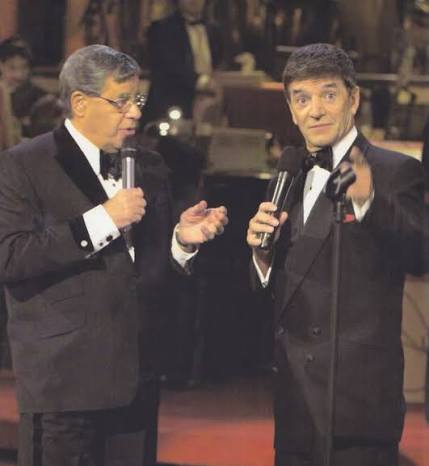
I talked to Jerry Lewis one night, well over an hour and a half in my dressing room. I knew Jerry. I did the Jerry Lewis Telethons a lot. I was curious about comedy teams because I had been a member of a comedy team and I asked him about him and Dean.
He said Tom, in the beginning, we (Dean and I) didn't have great material. He said we did things like, Did you take a bath today? No, why is one missing? You know, those kind of old jokes and stuff. He said, but we loved one another, and the audience saw that, that we had great love for one another. And they also saw when we didn't have love for one another. But he said it was our chemistry, this Jewish kid and this Catholic guy, which was in those days, a Jew and a Catholic on stage together as a comedy team was extraordinary.
Tom mentioned his affection for the UK and performing there.
There was a chat show called the Des O'Connor show for years. And I was the first American comedian they used over there. I went back there twice to perform. I love the UK. I love the people there. I love their comedy, like Monty Python, and I think FAWLTY TOWERS starring John Cleese was one of the greatest sitcoms.
I love going back to the UK. They have a guy over there named Vinnie Jones. I play golf with Vinny all the time and we exchange jokes. I give him jokes to tell when he goes back to London.
Tom could have easily talked endlessly about his career and the fantastic times he spent with Frank, Dean and Sammy. But fans truly appreciate his kindness in sharing these heart-felt memories with us all. Many more inspiring stories are in his sensational book and one-man show, The Man Who Made Sinatra Laugh. Tom continues to perform at sold-out venues nationally and is a sought-after motivational speaker.
As David Letterman says in the foreword of Tom's book, "Like me, you will love Tom."
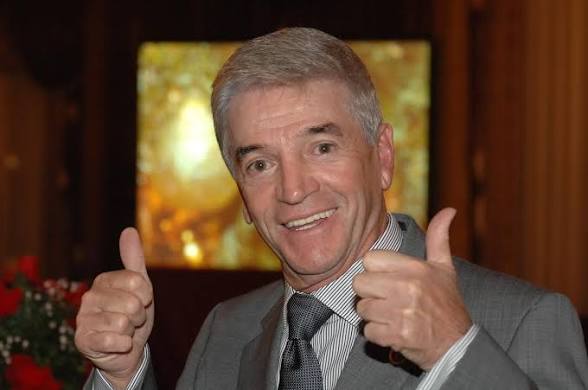
Thank you, Tom Dreesen! Lovely chatting with you!